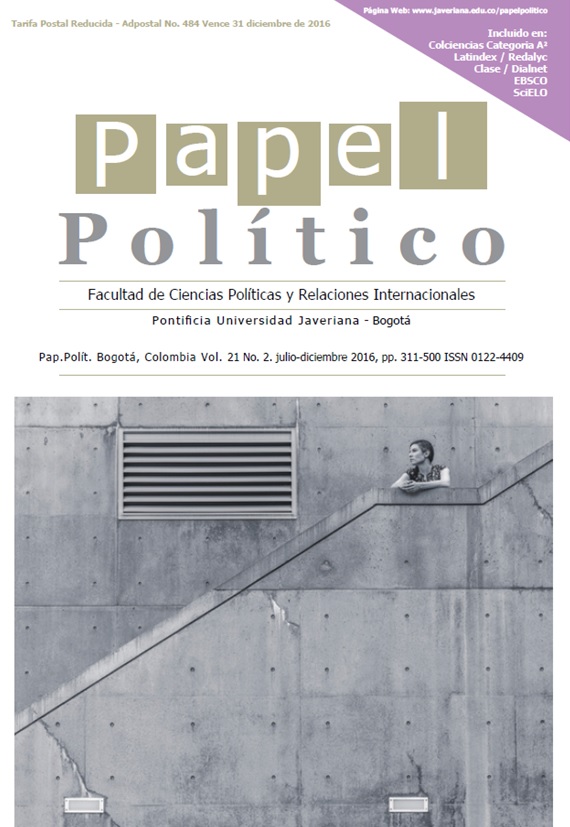Abstract
En este artículo, se quieren analizar las características principales del sistema westfaliano a partir de la teología política que Nicolás Gómez Dávila desarrolla en Textos I. Principalmente, se intentará mostrar que los Estados westfalianos toman los atributos de Dios y sustituyen a la divinidad en el papel que tenía en la Edad Media: reclaman para sí mismos la soberanía y la fundamentación axiológica y ontológica de los elementos del sistema. A partir de lo anterior, el artículo pretende señalar y analizar varios puntos. Primero, la anarquía estructural que surge con Westfalia no es un mero hecho político, sino que también es producto de una decisión teológica fundamental: quitarle a Dios la soberanía y autoridad supremas que jerarquizaban el sistema medieval para dividirlas entre Estados formalmente iguales en situación de anarquía. Segundo, el sistema internacional moderno es nihilista, puesto que con la muerte de Dios ya no hay un orden absoluto de las cosas, sino una situación en la que solo la fuerza de la voluntad estatal decide lo que tiene valor o no. Tercero, la diferencia interpretativa que hay entre Gómez Dávila y las narrativas tradicionales puede leerse como una lucha ideológica por darle contenido a un significante vacío en el sentido de Žižek. Finalmente, la postura de Gómez Dávila podría leerse como una hermenéutica de la sospecha que desvela los aspectos teológicos ocultos en un fenómeno aparentemente secular como el sistema westfaliano.
This journal is registered under a Creative Commons Attribution 4.0 International Public License. Thus, this work may be reproduced, distributed, and publicly shared in digital format, as long as the names of the authors and Pontificia Universidad Javeriana are acknowledged. Others are allowed to quote, adapt, transform, auto-archive, republish, and create based on this material, for any purpose (even commercial ones), provided the authorship is duly acknowledged, a link to the original work is provided, and it is specified if changes have been made. Pontificia Universidad Javeriana does not hold the rights of published works and the authors are solely responsible for the contents of their works; they keep the moral, intellectual, privacy, and publicity rights.
Approving the intervention of the work (review, copy-editing, translation, layout) and the following outreach, are granted through an use license and not through an assignment of rights. This means the journal and Pontificia Universidad Javeriana cannot be held responsible for any ethical malpractice by the authors. As a consequence of the protection granted by the use license, the journal is not required to publish recantations or modify information already published, unless the errata stems from the editorial management process. Publishing contents in this journal does not generate royalties for contributors.


